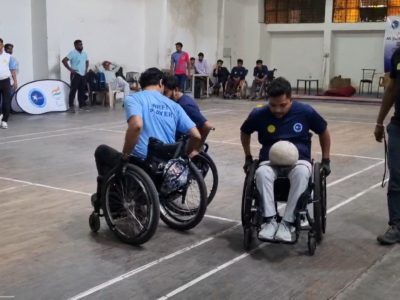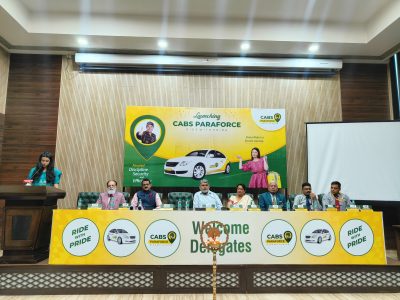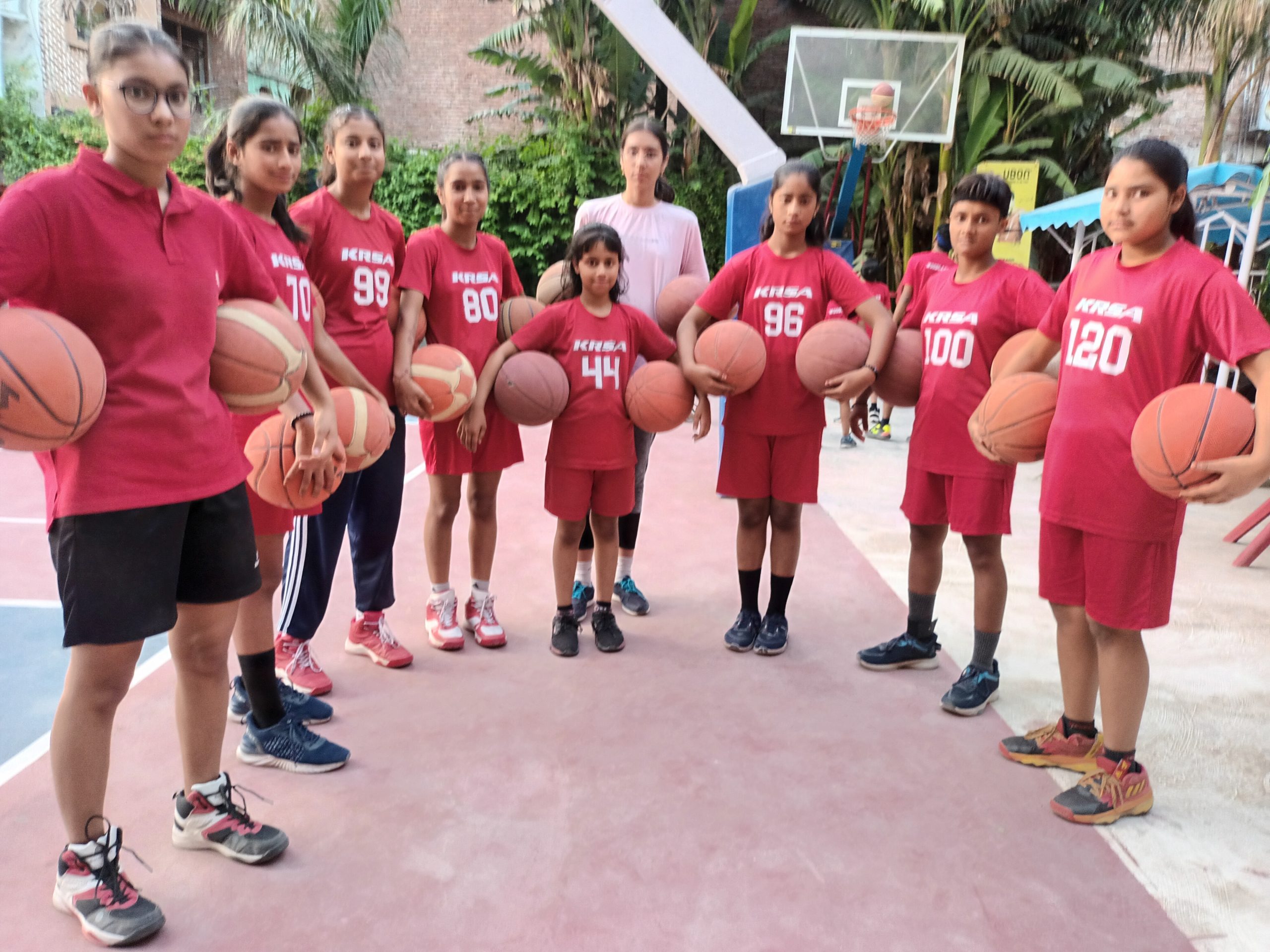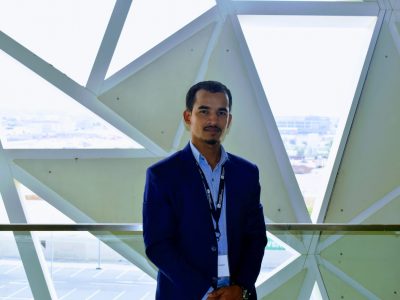The overwhelming presence of Malayalee nurses has transformed one of Delhi’s urban villages — Sarai Julena — into a mini Kerala
Delhi never fails to surprise with its incredible capacity to absorb people and cultures. Not just expats but people from different parts of the country with very distinct cultural and social milieus feel they belong here. A good example is an urban village called Sarai Julena in the heart of South Delhi — almost hidden, a stone’s throw from two big hospitals, namely Fortis Escorts and Holy Family.
In this congested little hamlet, houses stand tall, almost caressing each other across the thin lanes that run across the village like veins of a leaf. In the afternoon it’s sleepy, evenings are busy. To a casual observer, the place looks a little Kerala town. Young women with oiled curly hair held with a rubber band behind their heads, spread across the shoulder, are seen walking leisurely in twos and threes. During the busy hours of the day, women outnumber men on the streets. They are mostly from Kerala and almost all of them are nurses.
There are Kerala eateries and the general stores — even the hoardings are painted in Malayalam — that supply ingredients for a happy native meal. People come here from faroff places to enjoy the flavours of the southernmost state of India and buy local spices, banana chips fried in coconut oil, the famous Matta rice — also called Rosematta or red rice — and other region-specific foodstuff.
As one walks down the lanes, people talking in Malayalam is par for the course; many of the shopkeepers — some wearing mundu folded above their knees — address customers in Malayalam unless you clarify you’re a Hindi speaker. And you have to pinch yourself to remind that this is Delhi.
This transformation has taken many years, thanks to a ready supply of young women who come to the capital in search of a livelihood, the preferred profession being nursing. Not just Delhi, or the other metropolises, Kerala is the biggest exporter of nurses in the world, particularly in the Gulf countries and Europe where there’s an acute shortage of trained healthcare workers. This has been happening since the early 1970s, the nurses who emigrate being mostly Christians. It has become a sort of trend: to get trained as a nurse and look for a job outside Kerala, which is a ‘money order economy’ with more than one-third of the state’s income coming via remittance.
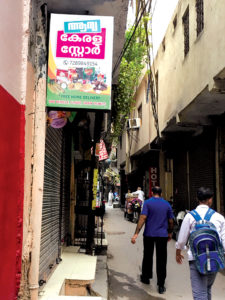
Rina is 25 years old, from Idukki district of Kerala and lives with Feba, 23, who belongs to Kottayam and joined her one and a half years ago. They are inseparable. They work in the same hospital and try to be in the same shifts to be together at work as well. “I spend most of my free time on the phone,” says Rina, breaking into laughter. Feba concurs. Smartphones help them speak to folks back home, watch movies.
The immediate task at hand is to learn Hindi. “I’m fairly comfortable in Hindi,” claims Feba in English and asserts, “I learn languages fast.” Feba is also learning German and wants to emigrate to Hamburg where her elder sister has been living for the last five years. Rina likes Delhi, and she makes it a point to go for an outing every other week like a ‘tourist’. She likes the Lotus temple a lot, and her favourite North Indian cuisine is butter chicken.
The life of a nurse can be lonely and exhausting. Morning and day shifts are of a duration of six hours each while the night shift is 12 hours long. Mariam, 27 years of age, has been living in Delhi for six years. She worked in Bangalore for a few years before she settled down in the capital. A good conversationalist, she speaks Hindi and has the body of an athlete — not a surprise to find that she idolises PT Usha. “I have great friends here. Friends are family when you’re far from home. Homesickness is a feeling you learn to live with, like dealing with disease,” she says. But friends are not a substitute for a partner.
When Mariam moved to Delhi with her boyfriend, she was open to the idea of marrying him. But he had other plans, and migrated to Dubai some three years ago. Mariam is on a dating website, and open to experiences, to life. “I can’t shrug off the feeling of akelapan (loneliness). Even when I’m in a relationship.” She attributes it to dealing with sick people and calls it an “occupational hazard”.
Living in Delhi for the last 10 years, Mary is a senior nurse and works in the cardiology department’s intensive care unit of a leading hospital where she deals with patients recouping after open heart surgery. “Many get a new lease of life, some die,” she says, in a matter-of-fact way. She’s not bitter or insensitive but somewhat immune to people in an extraordinary situation where they’re fighting a life-and-death battles. That’s her new normal. “When you see death so closely, you stop trusting life,” she says, “Kya rakha hai!”
Mary lives alone in a room. That’s rare, for usually nurses have a roommate, in some cases there are six in a room to save money to remit home. In this Gujjar-dominated locality, Sarai Jullena, every other house gives out a room or two for rent to nurses – it could cost anything from Rs 10,000 to 20,000 per month. In addition, there are two nurses’ hostels run by Fortis Escorts Hospital. “There are more nurses here than the locals,” says Keshav Singh from Farrukhabad, who sells fruits on a cart.
Sumi from Idukki is the manager of Malabar Biryani — the most famous eatery in the locality. Her restaurant caters to ‘mostly nurses’. Unusually for a lady from Kerala, “I have done a degree course in hotel management,” she asserts. Like the nurses she caters to, she travels to her hometown twice a year for a duration of two weeks.
One of the nurses having meal, Rosa, 32, agrees to talk. She has worked in three hospitals in Delhi in the last seven years. “Delhi is racist,” she says. She feels belittled by the patients, doctors and people at large because of her dark complexion. “I’m dark even by Kerala standards,” she says, wiping the sweat from her broad face.
It’s not just her but a general feeling amongst nurses from Kerala. “Most of the nurses in the government or the private hospitals in Delhi are from Kerala, but see the advertisement hoarding of hospitals — they always show a smiling ‘fair’ nurse from north India,” Rosa makes a pertinent point.
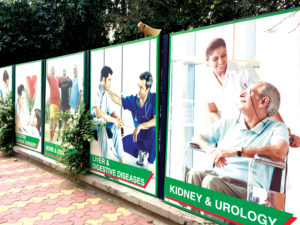
They are all paranoid about getting a picture clicked. It’s a big “NO”. “You take away a part of me,” explains Mariam. Anonymity is like a shield they don’t want to do away with.
Both language and colour of the skin are barrier. Therefore, more often than not, nurses live as a closed community. That’s perhaps the reason why Sarai Julena has become a ghetto of nurses. “There’s a barrier, but Delhi also allows us to exist in our own way,” qualifies Rosa.


